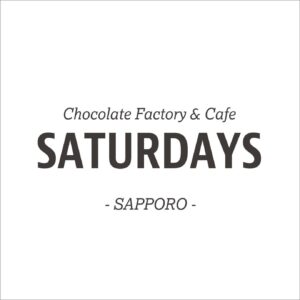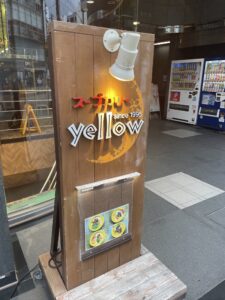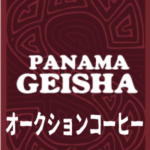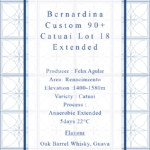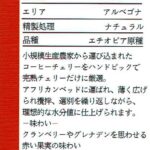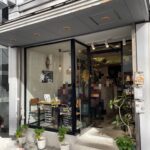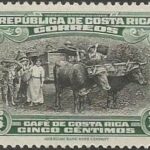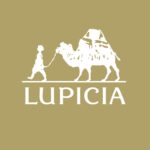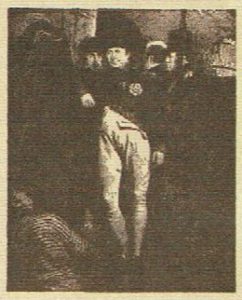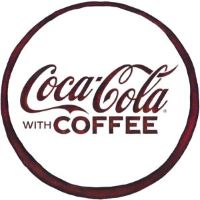
ザ・コカ・コーラ社とコーヒーのM&A
インスタントコーヒーとテンコ
ジョージ・コンスタント・ルイス・ワシントン(George Constant Louis Washington)は、ベルギー生まれで、アメリカ合衆国の初期のインスタントコーヒーブランドの生みの親である。彼は1909年にインスタントコーヒーの販売を開始し、1910年にG・ワシントン・コーヒー社(G Washington Coffee Co.)を設立した。G・ワシントン・コーヒー社は、アメリカ合衆国政府にとってインスタントコーヒーの主要な供給元となった。政府はインスタントコーヒーを大量に購入し、第一次世界大戦中、ヨーロッパの西部戦線にいたアメリカ兵に配給した。第二次世界大戦の間はラジオや新聞で、第二次世界大戦後はテレビで、このブランドは大々的に宣伝された。事業は1943年にアメリカン・ホーム・プロダクツ社(American Home Products Co.)に売却された。1961年、G・ワシントン・コーヒー社のニュージャージー工場が、当時コカ・コーラ社の一部門であったテンコ(Tenco)に買収され、ブランドは廃止された。
コーヒー市場のリーダーであったゼネラル・フーズ(General Foods)のマックスウェル・ハウス(Maxwell House)は、1945年にマックスウェル・ハウス・インスタントコーヒー(Maxwell House Instant Coffee)の販売を開始した。1950年までに、インスタントコーヒーはアメリカ合衆国の食料品店で挽き売りコーヒーから大きな市場シェアを奪っており、小規模な地方ロースターは、インスタントコーヒー市場に参入できないことに脅威を感じていた。インスタントコーヒー工場の建設は、すでに資本集約的なコーヒー焙煎事業の中でも多額のコストがかかるため、大規模な地方ロースターの域すら超えていた。
1898年創業のニューヨークのコーヒー・ロースター、ジョセフ・マーティンソン社(Joseph Martinson & Co,)の創業者の孫であるジョセフ・B・マーティンソン(Joseph B Martinson)に解決策がもたらされた。1952年、彼はニューヨーク州ブルックリンのアルバート・エーラーズ(Albert Ehlers)、テネシー州ナッシュビルのフリートウッドコーヒー(Fleetwood Coffee)、バージニア州リッチモンドのCW アントリム&サン(CW Antrim & Son)、オクラホマシティのカインコーヒー社(Cain Coffee Co.)、アラバマ州バーミンガムのドナヴァンコーヒー社(Donavan Coffee Co.)、イリノイ州シカゴのWF マクラフリン社(WF McLaughlin & Co.)、ニュージャージー州カムデンのウィリアム・S・スカール社(William S Scull Co.)など、東部の中規模ロースター10社のコンソーシアムを率いた。そして、メリーランド州ランドーバーにあるJWウィルキンス社(JW Wilkins Co.)は、マックスウェル・ハウスやその他の大企業の競合他社が第二次世界大戦後に製造・販売していたインスタントコーヒーに対抗できる製品を製造するため、テンコ(Tenco)というプライベートブランド・インスタントコーヒー製造会社を設立した。
今朝飲んだコーヒー1杯が、全国で何十万杯にも及ぶと、それは大きなビジネスになる。このビジネスがもたらす利益の大部分を誰が手に入れるか、裏では激しい争いが繰り広げられている。豆や粉、袋入りや真空パックのコーヒーは、戦前よりもかなり高価になったが、コーヒー取引業者は、その値上がりは消費財全体の値上がり率よりも低いと主張している。それでも、価格上昇はソリュブル(溶解)コーヒーに強力な後押しを与え、現在では重要な生産量に達したため、メーカーは二つの派閥に分かれた。一方の派閥は「ピュア」コーヒーと称する、コーヒーのみを含む粉末を製造し、もう一方の派閥は炭水化物を添加した製品を製造している。
状況の混乱
その真ん中に、おそらくこの状況全体に少し戸惑っているのが、100%のコーヒー粉末と炭水化物を添加したタイプの両方を製造している生産者たちだ。コーヒー技術者は「純粋」という言葉を嫌う。その理由は、すべてのメーカーが純粋な原材料を使用しているため、正しい表現は、1つのタイプを「100%コーヒー」、炭水化物を添加したソリュブル(溶解)型を「フィルド(充填)コーヒー」とするべきだからだ。
これらの炭水化物(主にデキストロース、デキストリン、マルトースで、いずれも糖の一種)は、これらの技術者によると、香りの保持を向上させるため、消費者の受け入れに重要な要因として当初添加された。最近の技術開発により、一部の技術者は、炭水化物は香りの保持にほとんど効果がないことが証明され、改良された方法により、それらを添加しなくても朝の香りを保持できるようになったと主張している。炭水化物に対する反対論の一つは、カロリーを避けるためにフィルド(充填)コーヒーをブラックで飲む人は、実際には気づかないうちにカロリーを摂取しているという点だ。いずれにせよ、加工技術の進歩により、多くの新しいソリュブル(溶解)コーヒーが市場に投入され、その多くは「ピュア」という言葉を使用しているが、一部の消費者は、フィルド(充填)コーヒーが「ピュアではない」と誤解している。
次々とメーカーがソリュブル(溶解)コーヒーを発売している。
価格魅力要因
一部のソリュブル(溶解)コーヒー製造業者は、当初、自社製品がレギュラーコーヒーよりも25%安いと主張して、価格魅力を売り込んだ。これに対し、1951年6月、サヴァリンの包装業者であるS.A. ショーンブルン社は広告で「この数値は、1杯あたりの使用量が極めて少ないため、結果として得られる薄っぺらな液体はほとんどコーヒーとは言えない」と反論した。
「コーヒーが好きな人は、コーヒーの香り、コーヒーの味、そしてコーヒーの満足感を期待する」と述べた。製造元は、濃縮製品で良いコーヒーを作れるなら作るつもりだと付け加えた。同社は先週時点でもまだ溶解性製品を製造していなかった。
しかし、他のメーカー、特に高品質コーヒーの生産者は諦めた。10社の焙煎業者が連合し、ニュージャージー州リンドンに共同所有の工場で100%溶解可能な製品を製造する計画だ。この工場はテンコ社(おそらく「テン・カンパニー」の略称)が運営し、週に1回の6時間清掃休止を除き、24時間365日稼働している。
共同所有計画
10人の焙煎業者がそれぞれ会社の株式の10%を所有し、総生産量の10%を分配する権利を有する。製品は、当然ながら、工場の利用者の要望に応じて大きく異なる。各メンバーは、原料として独自のブレンドのコーヒーを供給する。
共同所有の理論的背景は、生産量が需要を上回った場合、余剰生産能力を必要とする他のメンバーに提供できる点にある。この弾力性により、各メンバーが自社工場を持ち、実際の需要を超えて生産を継続する場合よりも、固定費を低く抑えることが可能になる。
10社の焙煎業者には、当市のアルバート・エーラーズ社、アーノルド&アボーン社、ジョセフ・マーティンソン社などが含まれる。フィルドソリュブル(充填溶解)コーヒーの主要3社は、100%タイプをさまざまな市場に導入し、既存のタイプを継続的に販売しつつ、徐々に販売網を拡大している。これらの企業は、スタンダード・ブランズ社のチェイス&サンボーン部門、ネスレ社、およびアメリカン・ホーム・フーズ社のG・ワシントン・コーヒー部門である。
コーヒー愛好家の財布を狙うこの熱狂的な動きを注視しているのが、お茶の生産者たちだ。彼らは、お茶の市場が大きな可能性を秘めていることを知っており、その市場を掘り起こすことができれば、大きなビジネスチャンスになると考えている。ティーバッグは多くの支持者を獲得しており、インスタントティー粉末にも大きな期待が寄せられている。これらの製品は、プロの茶鑑定家たちからも丁寧に評価されているが、茶の淹れ方について長年独自の理論を持つ飲用者は、新製品を試すことさえためらっている。
インスタントティーに関しては、ソリュブル(溶解)コーヒーを飲む人が直面する測定に関する混乱は生じない。100%溶解性の小さな瓶は、より大きな瓶の充填タイプとほぼ同量のため、一方から他方に切り替えて同じティースプーン1杯分を測っても、濃さが大幅に異なる飲み物になる可能性がある。
This morning's cup of coffee, multiplied by the hundreds of thousands up and down the country, means big business. A battle is being fought behind the scenes over who is to get the major share of the dollars that this business represents. Coffee in the bean or ground, in bags or vacuum-packed cans, is considerably higher in price than it was before the war, but coffee traders insist that the rise is lower than the over-all increase for a cross-section of consumer items. Just the same, the increase has given powerful impetus to the soluble coffees, now grown in such important proportions that the makers have split into two factions one producing what it calls the "pure" coffees, powders that contain nothing but coffee, and the other making products with added carbohydrates.
Confusion in Situation
In the middle, and perhaps a little confused by it all, are producers who make both the 100 per cent coffee powders and the type with the added carbohydrates. Coffee technicians dislike the word "pure," on the ground that all makers use pure ingredients and therefore the correct term would be "100 per cent coffee" for the one type and "filled coffee" for the soluble with the carbohydrates.
These carbohydrates — chiefly dextrose, dextrin and maltose, all of which are forms of sugar — originally were added, according to these technicians, to increase the retention of aroma, an important factor in consumer acceptance. Developments in recent years prove, some of these technicians say, that the carbohydrates do little to help retain the aroma and that improved methods have made it possible to hold the morning fragrance without them. One of the arguments against carbohydrates is that persons who drink a filled coffee black in order to avoid adding calories actually get them without being aware of it. In any case, the advance in processing has brought out a rash of new soluble coffees, many of them using the word "pure," even though consumers in some cases are misled into thinking that the filled coffees are "not pure."
One manufacturer after another has brought out a soluble coffee.
Price Appeal Factor
Some makers of solubles capitalized at first on the price appeal with the assertion that their product cost the consumer 25 per cent less than regular coffee. To this as far back as June, 1951, S. A. Schonbrunn & Co., Inc., packer of Savarin, retorted in advertising that "this figure is arrived at by using so scant a quantity per cup that the resulting thin liquid is scarcely coffee at all."
“If you like coffee, you expect the aroma of coffee, the taste of coffee and the satisfaction of coffee," it said. The manufacturer added that if good coffee could be made in a concentrated product he would make it. The company last week still was not producing a soluble.
But other manufacturers, producers of quality coffees, had capitulated. Ten roasters have joined forces to make as many 100 per cent solubles in a jointly owned plant in Linden, N. J. The plant, operated by Tenco, Inc., (short, presumably, for "ten companies,") is producing twenty-four hours a day, seven days a week, except for one weekly period of six hours when it closes down for cleaning.
Joint Ownership Plan
Each of the ten roasters owns 10 per cent of the company's stock and each is entitled to 10 per cent of the total production. The product, of course, will vary considerably according to the dictates of each of the users of the plant. Each member supplies his own blend of coffee as raw material.
The theory behind the joint ownership is that when production exceeds demand the excess capacity can be made available to others who might require it. This elasticity makes possible a lower overhead than would be the case if each member owned his own plant and kept it producing beyond actual demand.
The ten roasters include Albert, Ehlers, Inc.; Arnold & Aborn, Inc., and Joseph Martinson & Co., Inc., of this city. Three major producers of filled solubles have introduced the 100 per cent type into various markets and gradually are adding distribution while continuing to promote the earlier types. The companies are the Chase & Sanborn division of Standard Brands, the Nestlé Company and G. Washington Coffee division of American Home Foods, Inc.
Eyeing this feverish activity in scrambling for the coffee drinker's money are the tea producers, who know that there is a great market for tea if it can only be tapped. The tea bag has won a number of converts, and much is hoped for in an instant tea powder. Both of these products are spoken of politely by professional tea tasters, although the drinkers who have theories from way back on how tea should be made are reluctant even to try the new arrivals.
So far as an instant tea is concerned, there is no problem of confusion on measurement that confronts the person drinking soluble coffee. Since a small jar of 100 per cent soluble is roughly the equivalent of a larger jar of the filled type a person switching from one to the other and measuring out, say, the same teaspoonful, is likely to get a drink considerably different in strength.
"PROCESSED COFFEE STIRS TRADE WAR; Fight for Lucrative Market Centers in Two Types of Instant Solubles",The New York Times 1952年12月21日.
組織化の初期段階が終わると、他のコーヒー会社は顧客になることはできても、このコンソーシアムに入ることはできなかった。しかし例外的に、1956年にネルソン・ロックフェラー(Nelson Rockefeller)の国際基礎経済公社(IBEC)(International Basic Economy Corporation)が、11番目のパートナーとなった。国際基礎経済公社(IBEC)は、1947年1月に設立されたロックフェラー一族の投資を石油以外の事業に多角化することを目的としたベンチャー企業である。
国際基礎経済公社とテンコ社は、ソリュブル(溶解)コーヒーの製造、包装、販売を世界規模で展開する新会社を設立したと昨日発表した。国際基礎経済公社の社長であるネルソン・A・ロックフェラーとテンコの社長であるエドワード・アボーンは、新会社の名称を「イベンコ」とすると述べた。両社はイベンコにそれぞれ50%の株式を保有し、同社はカナダに最初の混合・包装工場を設立する予定だ。海外(おそらくオランダ)にも同様の工場の建設が検討されている。国際基礎経済公社は、国際的な金融・投資会社で、ブラジル、ベネズエラ、ペルー、プエルトリコ、その他地域において多様な事業を展開している。テンコは、国際基礎経済公社が最近11分の1の株式を取得した企業で、1952年に10社のコーヒー会社によって設立され、ソリュブル(溶解)コーヒーを供給するための研究・製造組織を設立し、企業株主向けに製品を提供することを目的としている。
A new corporation, which will blend, package and distribute soluble coffee on a world-wide basis has been formed by the International Basic Economy Corporation and Tenco, Inc., was announced yesterday. Nelson A. Rockefeller, president of International Basic Economy, and Edward Aborn. president of Tenco, said the new company would be named Ibenco. Each of the older companies will have a 50 per cent interest in Ibenco, which expects to establish its first blending and packaging plant in Canada. A similar plant abroad, probably Holland, also is under consideration. International Basic Economy, an international finance and investment company, operates a variety of enterprises in Brazil, Venezuela, Peru, Puerto Rico and other areas. Tenco, in which International Basic recently acquired a one-eleventh interest, was formed by ten coffee companies in 1952 to create a research and manufacturing organization to supply the corporate stockholders with soluble coffees.
”WORLD PLANS MADE FOR SOLUBLE COFFEE,”The New York Times 1956年11月20日.
エドワード・アボーンJr.(Edward Aborn Jr.)は、1878年に創業した家業の焙煎業アーノルド&アボーン(Arnold & Aborn)をマーティンソンに売却しようとしていた。マーティンソンは、アボーンが優れたコーヒーマンであり、コーヒー業界で尊敬されている人物であることを知っていた。彼はアボーンにテンコの経営を打診した。アボーンはこれに同意し、テンコの社長に就任した。
1959年、テンコはミニッツメイドに売却され、アボーンはミニッツメイド(Minute Maid)の取締役とテンコ部門の社長に就任した。1960年、ザ・コカ・コーラ社(The Coca-Cola Company)はミニッツメイドとテンコを買収した。
テンコは、ニュージャージー、エルサルバドル、グアテマラ、メキシコ、カナダ、ドイツ、イギリス、カリフォルニアにカフェイン除去施設を持つ、当時第2位のインスタントコーヒー製造業者であった。アボーンはザ・コカ・コーラ社の取締役となった。1961年、テンコはニュージャージー州リンデンのG・ワシントン・コーヒー社のインスタントコーヒー工場を買収し、G・ワシントン・コーヒー社のコーヒーブランドは市場から姿を消した。
1892年の創業以来、70年以上もの間、ザ・コカ・コーラ社は、コカ・コーラ1種類の飲料のみを販売していた。ザ・コカ・コーラ社は、インスタントコーヒーとカフェインレスコーヒーの事業に参入することにより、副産物としてカフェインを取得することができ、主力の清涼飲料水の原料として役立てることができた。1968年、ミニッツメイドはブラジルの大手フリーズドライ・インスタントコーヒー製造業者、フルサル(Frusal)を買収した。
ザ・コカ・コーラ社とコーヒー事業
ザ・コカ・コーラ社は、1970年代にバター・ナッツ・コーヒー(Butter-Nut Coffee)とともにメリーランド・クラブ・コーヒー(Maryland Club Coffee)を所有していた。
バター・ナッツ・コーヒーは1913年に設立され、1961年にメリーランド・クラブ・コーヒーのロースターであるダンカン・フーズ(Duncan Foods)に買収された。ダンカン・フーズは、1964年にザ・コカ・コーラ社に吸収合併された。この買収には、ネブラスカ州オマハのパクストン・ギャラガー・コーヒー社(Paxton Gallagher Coffee Co.)、ペンシルベニア州ランズデールのWS スカル(WS Scull)、カリフォルニア州ロサンゼルスのハギンズ・ヤング・コーヒー社(Huggins-Young Coffee Co.)も含まれていた。
25年後の1989年、ザ・コカ・コーラ社はコーヒー事業の売却を決めた。プロクター&ギャンブル社(P&G)(The Proctor & Gamble Company)が買い手の候補だったが、プロクター&ギャンブル社は1963年からフォルジャーズ(Folgers)のブランドを所有していたライバルであったため、ザ・コカ・コーラ社は別の買い手を探した。ザ・コカ・コーラ社はこの事業をアライド・ライオンズ社(Allied-Lyons PLC.)に売却し、アライド・ライオンズ社は同じ年に一転してプロクター&ギャンブル社(P&G)に売却した。
アライド・ライオンス社(テトリー社の英国親会社)は、ザ・コカ・コーラのテンコ部門が米国と英国で展開するコーヒー、紅茶および関連事業を買収する合意に達したと発表した。
アライドは、年間売上高40億ドルを超える多角化多国籍企業で、この暫定合意にはテンコのグアテマラとブラジルにおける事業、およびコカ・コーラ食品部門の製品は含まれていないと述べた。
アライド・ライオンスは、最終契約の交渉が継続中であるこの取引が、年内までに完了する見込みだと述べた。取引条件は非公開とされた。
Allied-Lyons PLC, the British parent company of Tetley Inc., said it had reached agreement to buy the coffee, tea and related businesses of the Coca-Cola Company's Tenco division in the United States and Britain.
Allied, a diversified multinational with annual sales in excess of $4 billion, said the preliminary agreement did not include Tenco's businesses in Guatemala and Brazil, or the products of Coca-Cola's food division.
Allied-Lyons said the transaction, still subject to negotiation of a definitive agreement, was expected to be completed by the end of the year. Terms were not disclosed.
"Coca-Cola Unit In Sale Accord"”The New York Times 1981年11月18日.
コーヒーのM&A
1964年、イギリスの紅茶・インスタントコーヒー会社であるJ・ライオンズ社(J Lyons & Co.)は、チョックフル・オ・ナッツ(Chock Full O' Nuts)の株式を取得した。チョックフル・オ・ナッツは拡大路線に走り、これらの買収により地理的に多様な焙煎・販売施設を新たに持つこととなった。
J・ライオンズ社とチョックフル・オ・ナッツは、1965年に合弁会社ソル・カフェ社(Sol Cafe Ltd.)を設立した。4年後、J・ライオンズ社はチョックフル・オ・ナッツを買収した。J・ライオンズ社は1982年にザ・コカ・コーラ社からイベンコ(英国)社(Ibenco (Great Britain) Ltd.)を買収し、テンコ(英国)社(Tenco (UK) Ltd)と改名した。
J・ライオンズ社は、1972年にビーチ・ナッツ(Beech-Nut)の傘下にあったジョセフ・テトリー社(Joseph Tetley & Co)のアメリカ部門とイギリス部門を、他の飲料部門とともに買収した。J・ライオンズ社の傘下となったジョセフ・テトリー社(アメリカ部門)は、この時期にもコーヒー事業の拡大を続け、マイアミを拠点とするオケンド・ロースティング社(Oquendo Roasting Co.)を買収し、高品質のダークローストコーヒーを焙煎・販売した。1977年、J・ライオンズ社はアライド・ブリュワリーズ(Allied Breweries)に売却され、ジョセフ・テトリー社(アメリカ部門)の新たな親会社となったアライド・ライオンズ社(Allied-Lyons PLC.)が誕生した。
アライド・ライオンズ社での傘下にあったJ・ライオンズ社は、ザ・コカ・コーラ社のテンコ部門のアメリカおよびイギリス事業を買収した。1982年、ジョセフ・テトリー社(アメリカ部門)は、SA ションブラン社(SA Schonbrunn & Co.)を買収し、コーヒーのラインナップを増やした。1989年、ジョセフ・テトリー社(アメリカ部門)はインスタントコーヒー事業に終止符を打ち、テンコをチョックフル・オ・ナッツに売却した。2000年には、残りのコーヒー事業を整理した。
ニューヨーク — チョックフル・オ・ナッツ・コーポレーションは、テトリー社のプライベートブランドインスタントコーヒー事業であるテンコを約$700万ドルで買収する意向書を締結したと発表した。
テンコはインスタントコーヒーの製造・加工を行い、主要なスーパーマーケットチェーン向けにプライベートブランド製品として販売している。同社のコーヒー事業における売上高は1988年に$2200万ドルに達した。
チョックは、この取引の一環として、テンコのニュージャージー州リンドンにあるインスタントコーヒー工場の長期賃貸契約を締結する予定だと述べた。
NEW YORK — Chock Full O’Nuts Corp. said it has signed a letter of intent to acquire the Tenco private-label instant coffee business of Tetley Inc. for about $7 million.
Tenco processes instant coffee and markets it to major supermarket chains for private-label sales. Revenue from its coffee business totaled $22 million in 1988.
Chock said it would sign a long-term lease on Tenco’s instant coffee plant in Linden, N.J., as part of the deal.
"Chock Full O’Nuts Seeks to Buy Tenco",Los Angels Times 1989年8月15日.
1994年2月までに、アライド・ライオンズ社はペドロ・ドメック(Pedro Domecq)のコングロマリットを買収した。この買収には、テンコ(英国)のインスタントコーヒー事業が含まれていた。テンコ(英国)はフィリップ・モリス(Philip Morris)傘下のクラフト・ジェイコブス・スチャード(Kraft Jacobs Suchard)に売却された。これにより、テンコの名前は業界から消えた。

